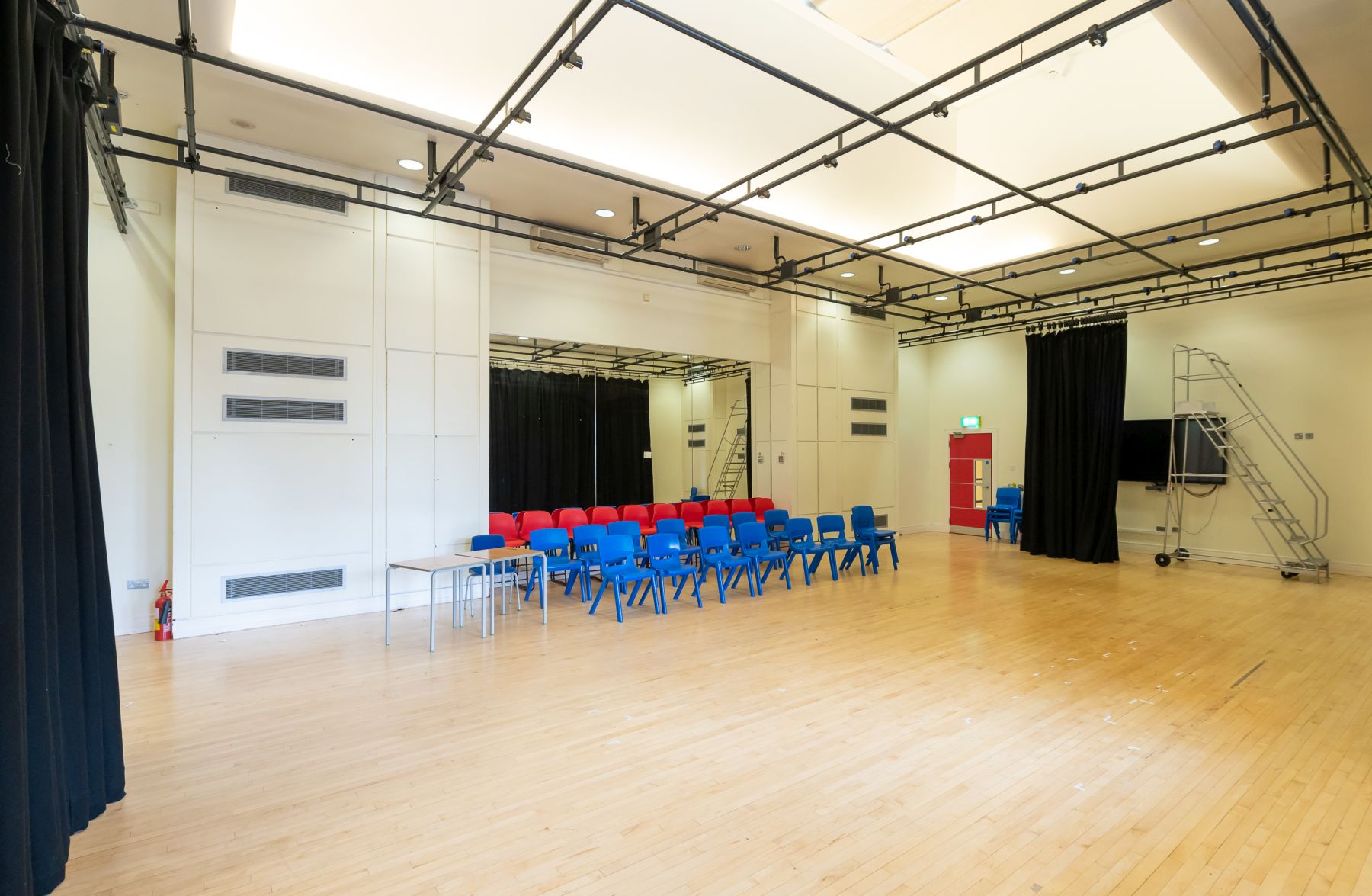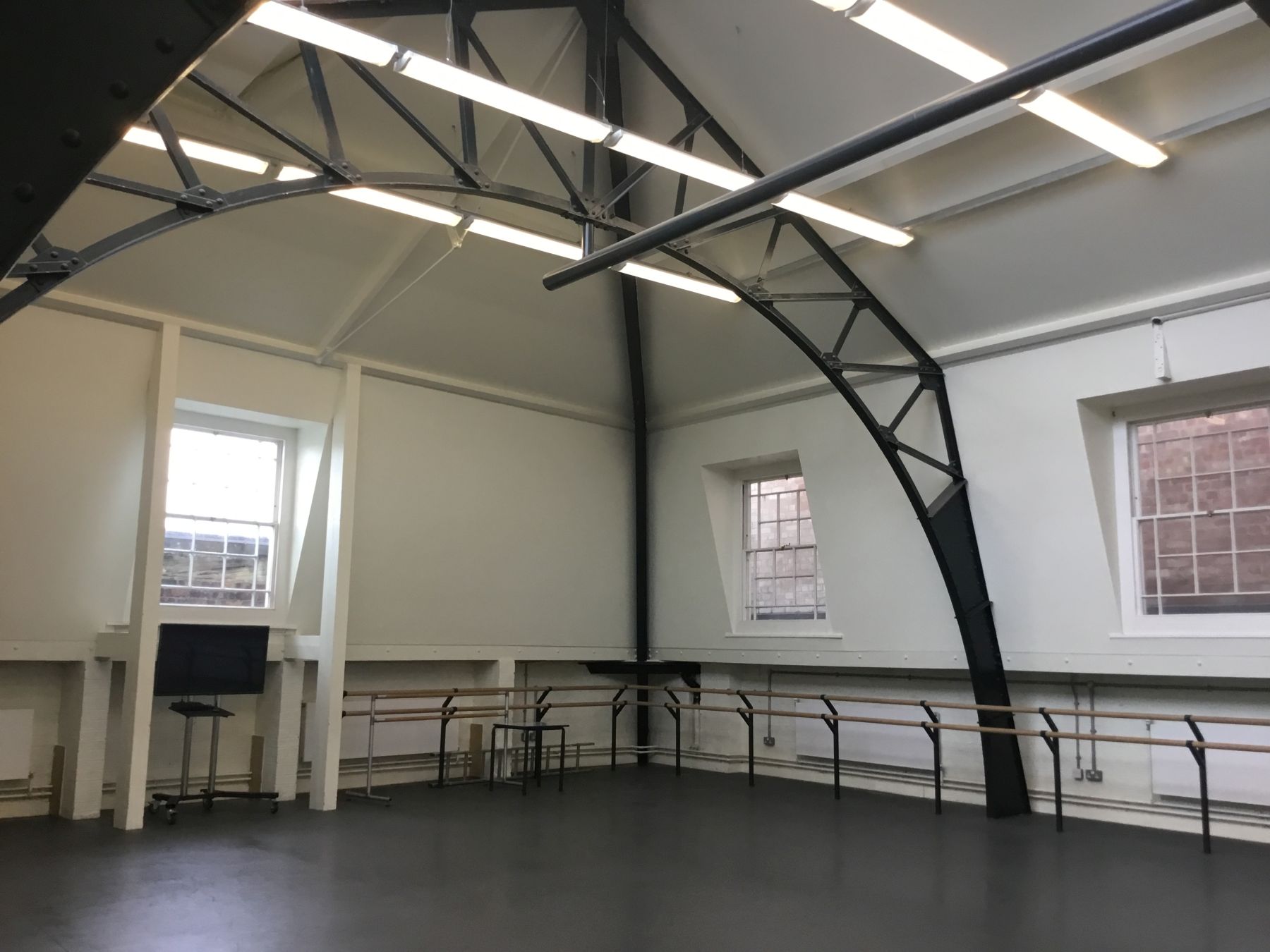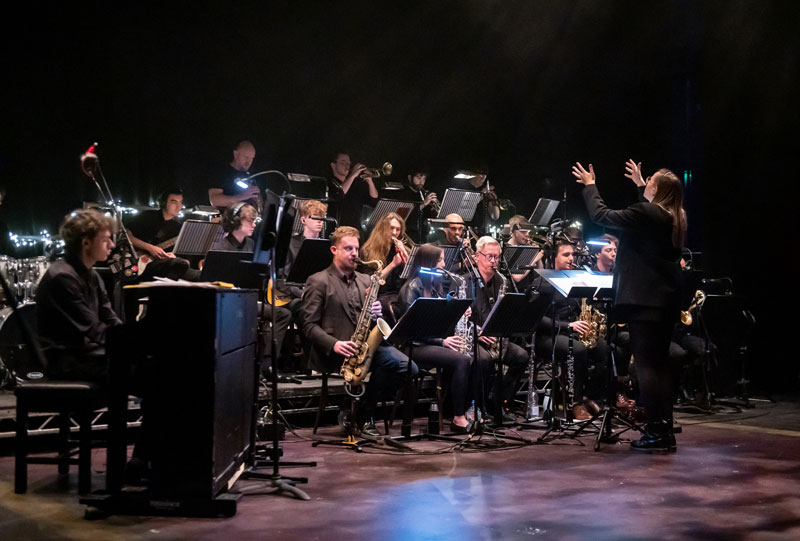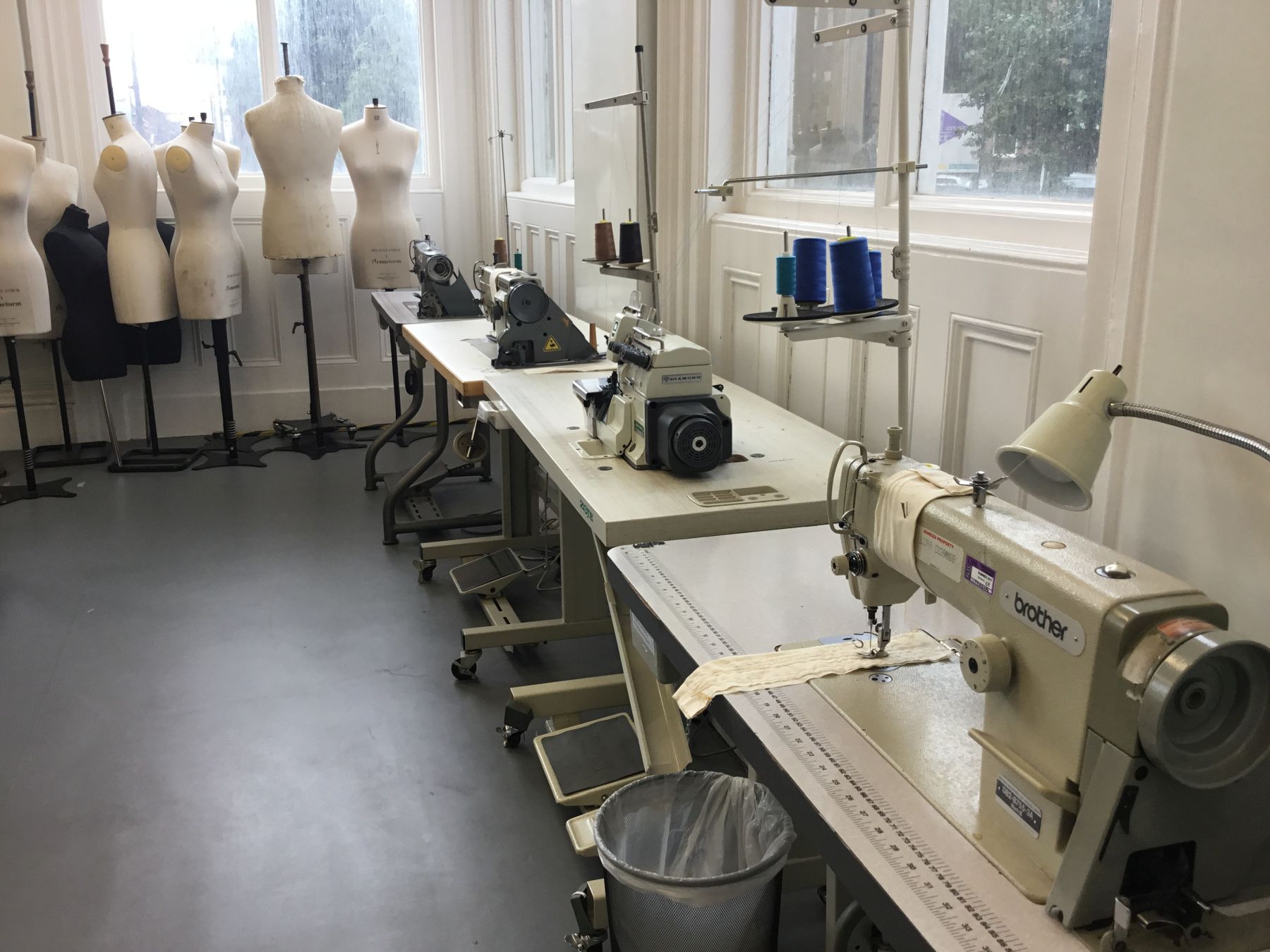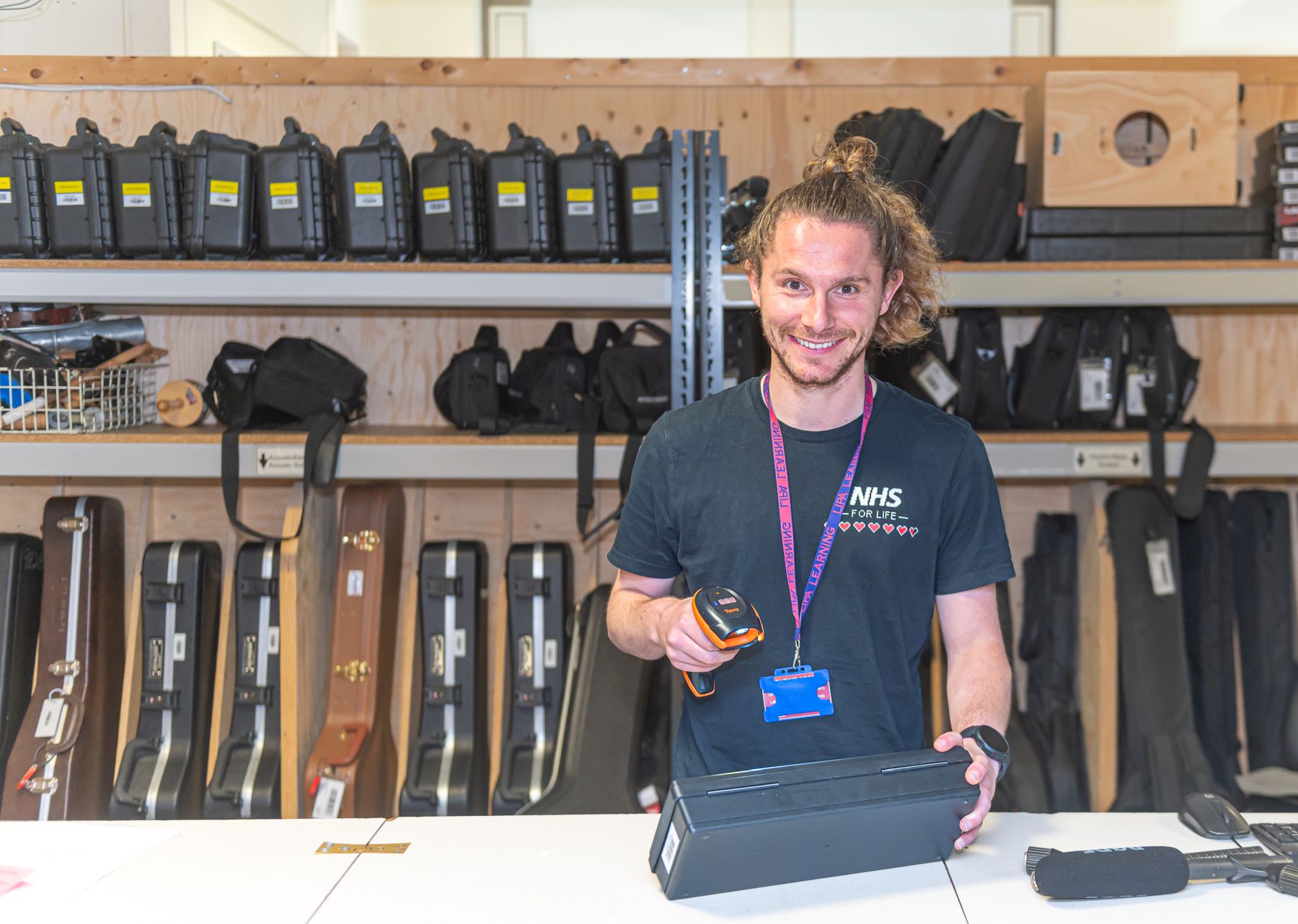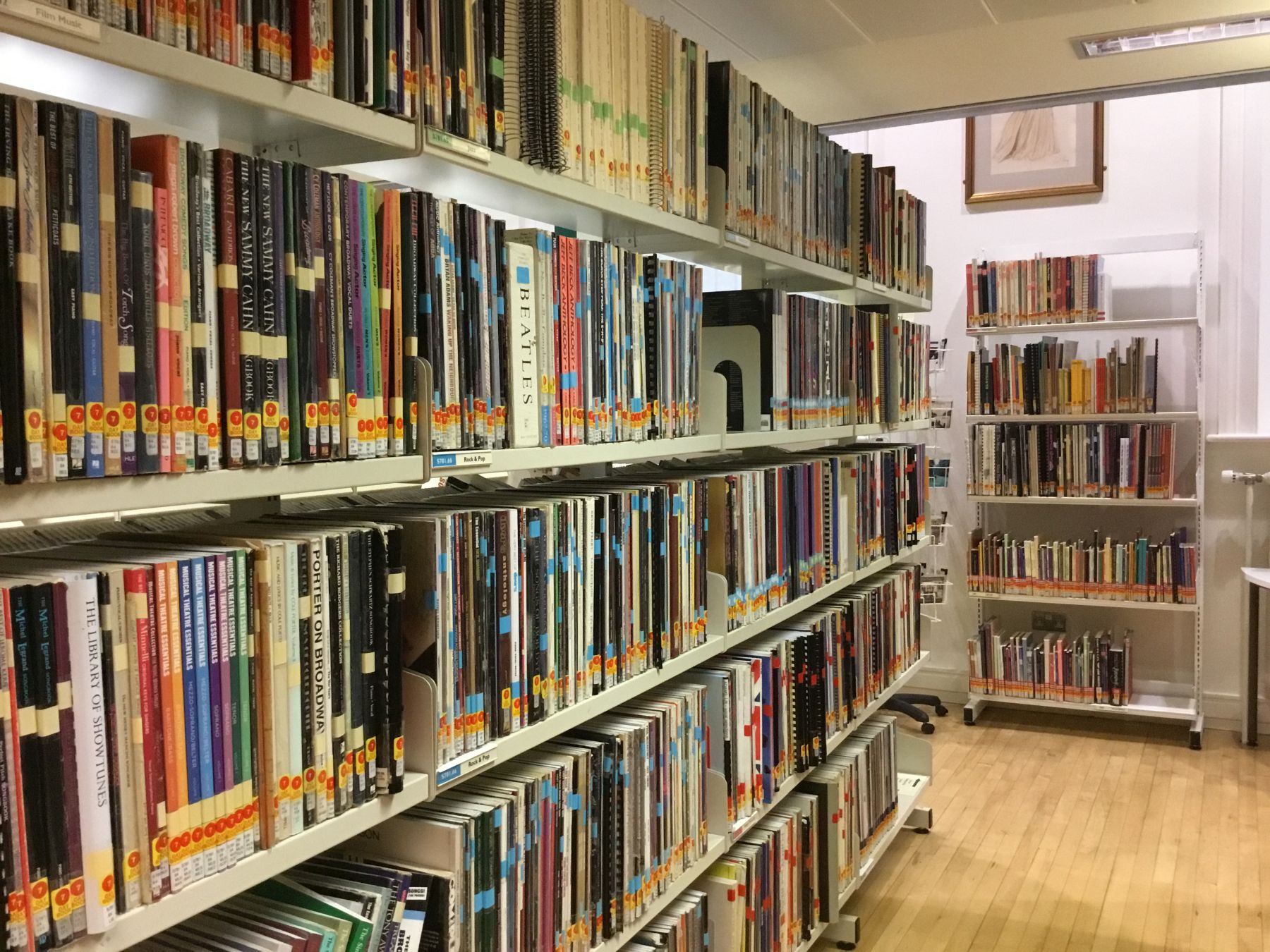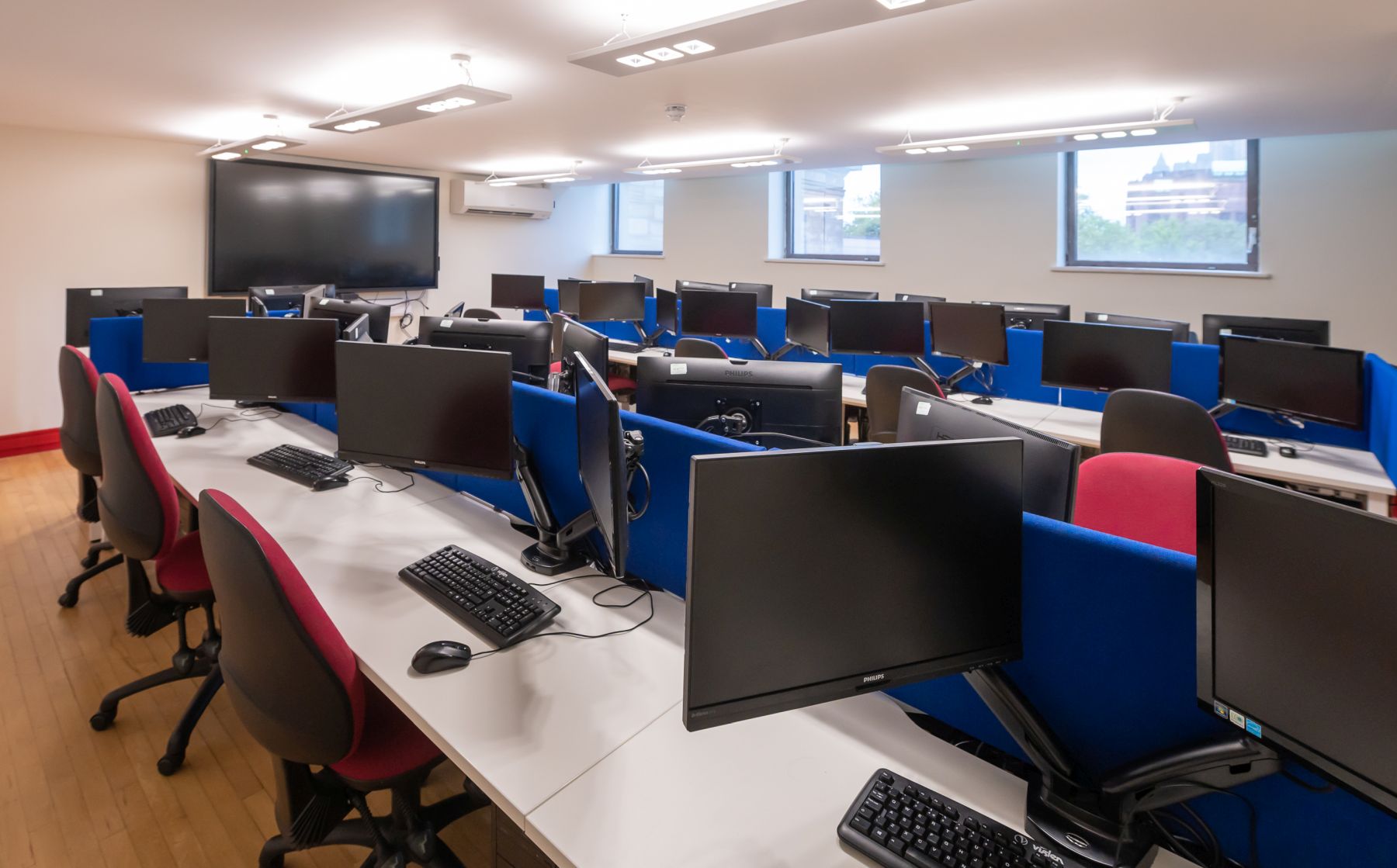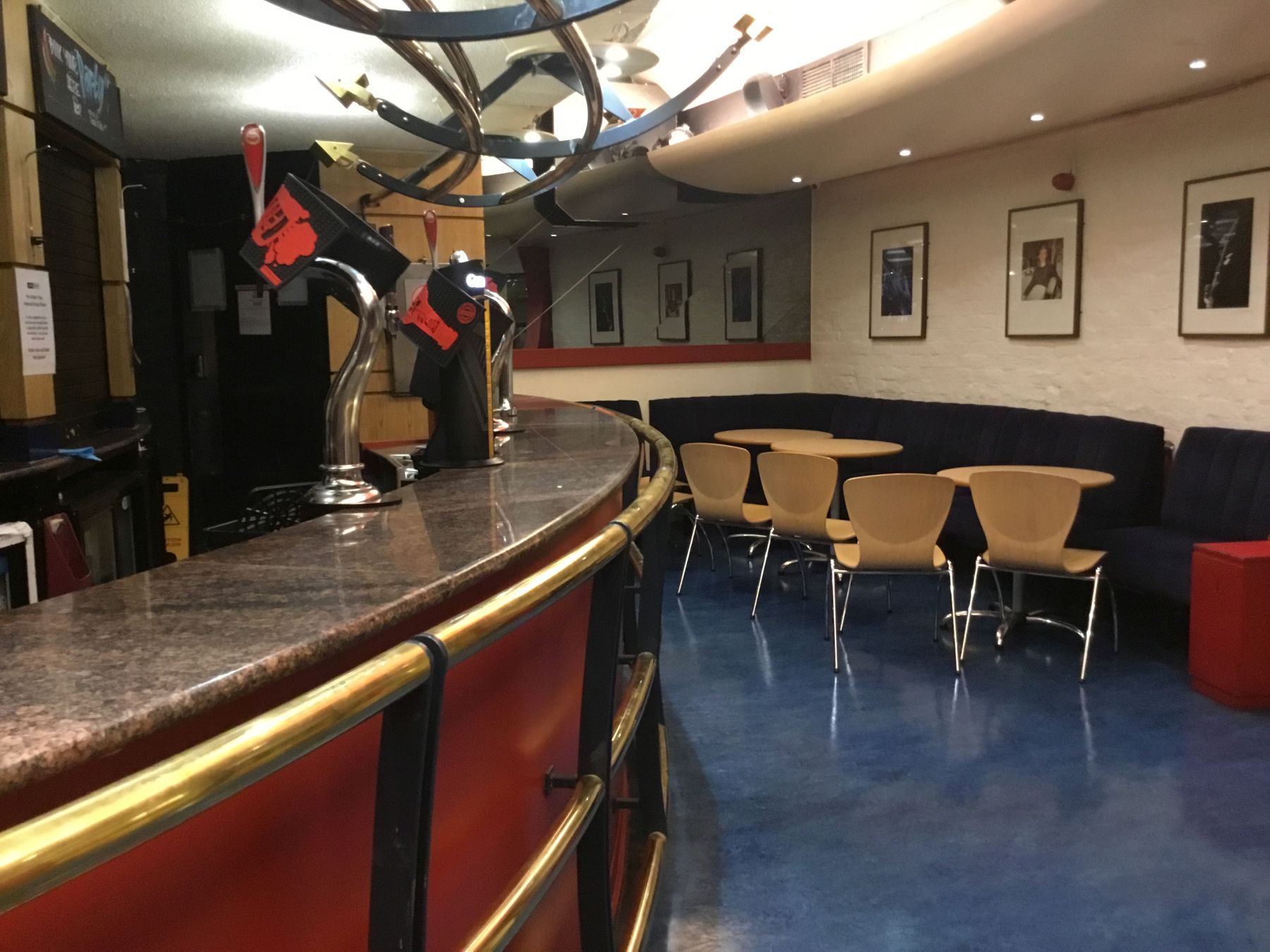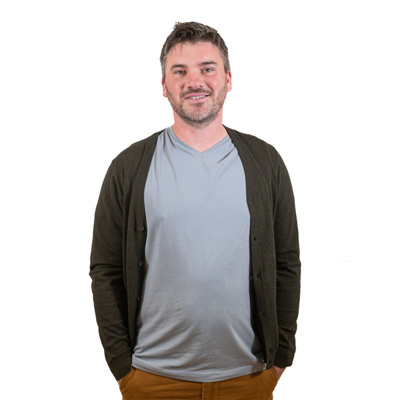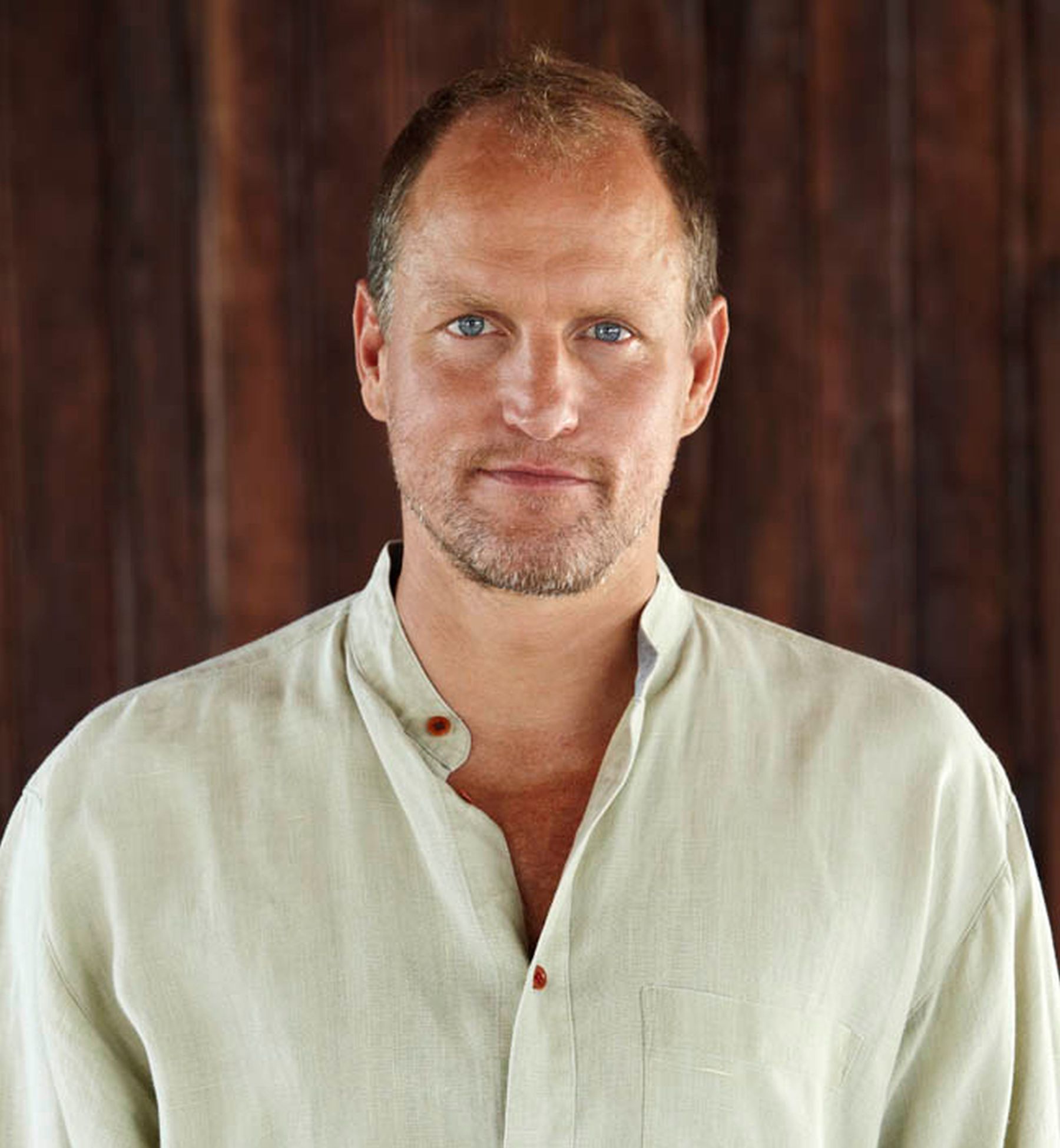Course
Overview


Our proven actor training is combined with established first-class instrumental, singing and movement coaching to create actor musicians: multifaceted performers able to satisfy the industry’s increasing demands for actors who can make music as part of their storytelling skills.
You will develop essential technical skills in acting, instrumentation, singing and movement, as you study classic and groundbreaking musical material. In your third year you collaborate with professional theatre makers on two public performances and an industry showcase, while creating digital showreels for your portfolio.
Accredited By:


Will Hammond, Director of the School of Performance, discusses our BA (Hons) Acting (Musicianship) course, including: how you'll train while being part of LIPA's creative community, why Liverpool's a great base for an Actor/Musician and how the course is a response to an industry need.
What You Will
Study
The Actor's Preparation: Acting & Musicianship Principles I
In this module, you examine vital technical principles and practitioner approaches to develop a framework for analysing and realising text. Technical acting sessions contribute to acting through song, as do presenting scene-into-song episodes to peers. Instrumentation tuition, dance and singing studies underpin this module. You are introduced to vocal and physical anatomy and physiology. The module culminates in project work as you reinforce these fundamentals.
The Actor’s Preparation: Acting & Musicianship Principles II
This module advances your technical application when approaching character from a canon of established and respected works in a directed presentation of dramatic musical scenes. Acting through song provides a continuation of scene-into-song studies to reinforce and develop technique. Instrumentation and compositional studies improve and expand your musical knowledge. Dance focuses more closely on ballet technique and you start to explore a variety of musical theatre dance styles, such as ballroom. Singing aims to identify and address technical issues, tone production and resonance; voice sessions also examine accent, speech and text.
The Actor’s Preparation: Acting & Musicianship Principles III
For this module you strengthen and integrate the technical approaches you’ve learned so far in a directed actor-musician workshop presentation to an internal audience. Incorporating independent research and an individual rehearsal approach, you test your ability to engage with psychological, physical and vocal techniques. You also develop your ability to combine musical instrumentation skills, collaboration and legit vocal qualities, including onsets and stylistic singing qualities
Artistic Practice I [Shared Module across all BA Acting courses]
In this module, you will develop the necessary skills to create original work and extend your ability to work as part of a creative ensemble. Narrative and performance sessions include devised, verbatim and site-specific approaches to generating original works. As part of a small group, you create a short staged, digital or audio performance. Alongside creative skills you undertake research and development, understanding cultural perspectives and audience demographics to ensure your work is relevant to a contemporary audience. You are introduced to business and enterprise skills so you are familiar with the practicalities of staging and managing an event.
The Actor's Process: Musicianship Project I
This project provides you with the technical approaches to unearth advanced acting approaches. You begin to adapt and adjust your technical knowledge by working across a variety of performance styles, genres (including Vaudeville and Epic Theatre) and platforms (including digital) to expand your abilities. You are encouraged to consolidate practitioner methodologies, vocal and physical choices, as you explore hybrid technical approaches so you can forge your own personal acting process for actor musicianship. This module includes live workshop presentations to your peers.
The Actor’s Process: Musicianship Project II
This project allows you to test your developing process when applied to classic musical works. You take further responsibility for realising the demands of the material and are expected to identify appropriate methods and techniques for approaching classic works. You work with advanced musicianship by integrating acting and instrumentation, working with greater physical stamina, strength, and flexibility, connecting dynamic vocal qualities and unforced projection. You also create an original musical score or accompaniment for theatre.
The Actor’s Process: Musicianship Project III
This project introduces you to boundary-breaking musical works, unearthing a combination of styles and genres. Beginning now to mirror professional practice, you receive structured direction, musical direction and choreography in the creation and execution of a fully realised work. You undertake independent research in the development of a unique and integrated actor musician theatre work to an audience across a number of performances.
Artistic Practice II [Shared Module across all BA Acting courses]
In this module you develop your creativity by researching and originating a personal performance of your choice. This could be a script submission, micro-musical or play reading, short film or screening. You investigate cultural perspectives around your chosen subject area/theme to discover the technical demands of your piece and adapt it to ensure it is original and inventive. You further your business and industry skills, including project planning and target audiences as well as honing your audition technique.
The Actor’s Performance: Professional Musicianship Production I
In this module you work with professional theatre-makers, including students from other courses, to realise an original live public production. You reach professional standards and expectations, as you work independently to research and prepare for the rehearsal process and meet the vision of your director, musical director, choreographer and creative team. You exercise your ability to demonstrate technical aptitude, professionalism, organisation and time management skills, an understanding of professional profiling and the repetition and recreation of work via performance technique.
The Actor’s Performance: Professional Musicianship Production II
In this module you build on previous experience, assuming full responsibility for your own preparation, process and production of work that meets professional standards. By working in simulated industry scenarios, you are presented with challenging expectations which are representative of the real world. The module follows a similar structure to Production I, culminating in a production of work for a public audience. Your interpersonal skills, independent methodology and professionalism is further tested through self-governed responsibility and engagement with collaborators.
The Actor’s Performance: Professional Musicianship Production III
For this module, you collate a promotional portfolio, containing work in digital media, music and voice recording as well as screen-work. You research and evaluate appropriate industry networks to engage with in preparation for your future career and use your portfolio when contacting industry and employers. You take part in a live industry showcase, generate showreels, voice reels and additional promotional material according to your career plans and employment aspirations. Work produced on this module is public-facing and can be used to secure an agent or present yourself to future employers.
Artistic Practice III [Shared Module across all BA Acting courses]
This module brings together your independent research, creative enterprise skills and professionalism as you advance your ability to develop and create new material. Supervised by a mentor, you adopt both a creative and a production role as you generate a brand-new piece of work for our annual festival of new writing. You may also improve your independent entrepreneurial and project management skills by developing a solo project.
How You Will
Study
-
Technical Skills Classes
-
Performances
-
Seminars
-
Workshops
-
Independent study
-
Group work
-
Masterclasses
How You Will Be
Assessed
Your assessment takes place during practical classes and rehearsals, performances and your reflective tasks. Overall, assessment is based on applications of technique in performance situations, either in front of an audience or in workshops.
The coursework element is focussed on your future career, your working environment and critical life skills. In your third year you undertake an optional practical or written research project. Again, career focussed and chosen by you.
Practical/written work ratio
Approximately 80% practical work / 20% portfolio
Andrew Waldron
Head of Musical Theatre
Andrew Waldron (he/him) is an experienced practitioner and educator specialising in Musical Theatre. After training at Italia Conti, Andrew progressed into performing within the Musical Theatre sector with work taking him across the world. His performing credits include Mack & Mabel, 9 to 5, Cabaret, Follies, A Chorus Line, Chitty Chitty Bang Bang, Happy Days – A New Musical, Annie, and The Sound of Music. Andrew’s performing career introduced him to some of the world’s finest and most innovative creatives.
Alongside his performance career, Andrew delivered masterclasses for drama schools and theatre companies, as well as directing and choreographing many projects and productions. He subsequently continued his studies completing a further degree at Middlesex University and an MA in Theatre at University of Surrey. Andrew is a Fellow of the Royal Society of Arts (FRSA) and a Fellow of Advanced HE (FHEA).
Andrew has taught at several drama schools including Mountview, Performers College, and Urdang. Prior to his role at LIPA, Andrew worked at Italia Conti for eight years where he was Deputy Head of the School of Musical Theatre and Dance. Here he supported the development of their undergraduate provision including validation of various BA (Hons) and Cert HE courses and producing multiple industry facing performances and events.
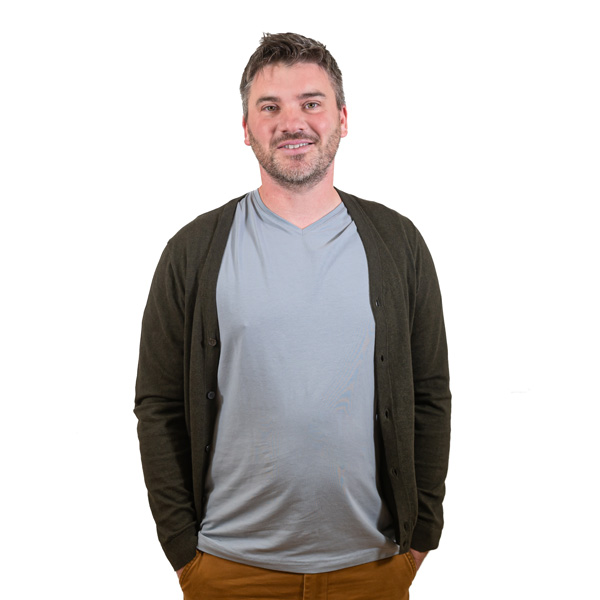
Matthew Dudley
Lecturer
Matthew has taught on and led professional training and degree programmes for over 15 years. After studying at Trinity College of Music and the Guildhall School of Music and Drama, he performed in the UK and in Europe. Matthew has taught voice, text and singing at several respected training institutions, including Guildford School of Acting and Italia Conti, and has delivered workshops throughout the UK for organisations such as Bristol Old Vic Theatre School and the British Voice Association. He is a certified Associate Teacher of Fitzmaurice Voicework and has taught on the certification programme in Los Angeles. His teaching is influenced by his study of classical and contemporary voicework, and incorporates movement work, mindfulness and concepts taken from his study of psychotherapeutic modalities.
What Our
Graduates Do
This is a new course, and with the increased demand for performers who combine high level acting skills with first rate musicianship, we expect our graduates to be equipped to gain sustained work with leading theatre companies, musicals, television, film, radio, emerging digital platforms and as musicians. Some of our graduates may also set up their own independent theatre and production companies.
Related
News

Three LIPA grads part of Legally Blonde tour

Gallery: Filmmakers recreate scenes from Blade Runner

Acting grad appears in prime-time ITV thriller

Watch: award-winning film created by LIPA students and grads

Winter/Spring season of public performances

Acting grad has major roles in two huge TV shows

Gallery: Term one productions 2025/26

A busy and creative Christmas for LIPA grads

LIPA secures £2.5m Office for Students capital funding to deliver new performance and digital innovation hub

Autumn/Winter Season of public performances

LIPA achieves major milestone: new degree awarding powers

Gallery: Graduation 2025

Sir Paul McCartney honours leading arts figures at LIPA graduation

LIPA grads and students head to Edinburgh Fringe

Bryn Holding: ‘the seeds of being a director were sown at LIPA’

Watch: Acting grad Jak Malone wins Tony Award

James Nesbitt Q&A: six key takeaways

Watch: One Night, Four Films
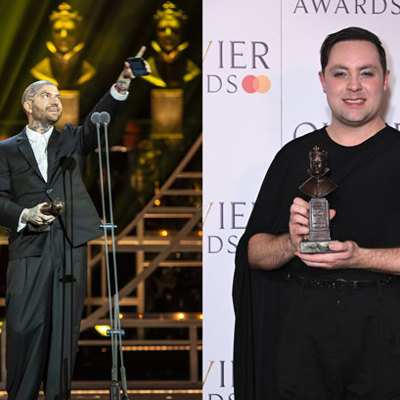
Tony Award nominations for two LIPA graduates

LIPA grad Jessica Reynolds to star in new Channel Four drama

LIPA grad to direct Michael Sheen in Welsh National Theatre’s debut season

Life after LIPA: Acting graduate Sian Polhill-Thomas

Acting student set for West End showcase
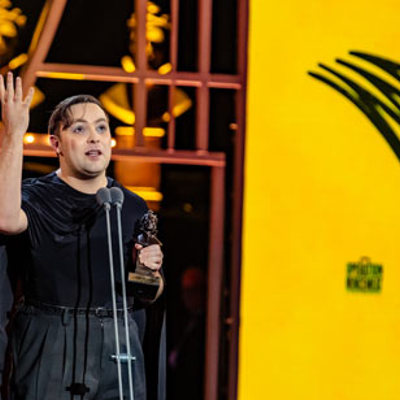
Acting grad makes Broadway debut

Acting grad Matthew Khan: Waterloo Road was a 'sink or swim' moment

The Lion, the Witch and the Wardrobe: LIPA grad heads back to Liverpool in ‘bucket list’ role

Three LIPA grads listed in The Stage 100

LIPA grads get creative for Christmas

New Acting course: 'It's an opportunity to take tradition and flip it upside down'

‘Films have a way of finding you out’ - Sir Sam Mendes at LIPA

“This award is and will always be so special to me”: LIPA grad wins ‘We See You’ award at the SoulFest Short Film Festival

LIPA shortlisted for environmental award

LIPA grads and students at Edinburgh Fringe

Gallery: Graduation 2024

Award-winning LIPA grad honoured by Sir Paul McCartney

LIPA grads help bring iconic Liverpool TV show to the West End

LIPA graduates' new play launches in London

Kobna Holdbrook-Smith MBE: Six key takeaways

FutureProof festival showcases LIPA's creative talents

‘My knees buckled’ - grad Jak Malone on winning an Olivier

Two Olivier Awards for LIPA graduates

LIPA grads taken aback by reaction to ‘Rockstar’ Bluey
Educational qualifications are important but limited in what they can tell us about you.
Your natural ability, your fit with what and how we teach, your growth and your potential are also key factors in our admission process. We can’t evaluate these solely on your educational achievements, so no matter which course you are applying for, we look for the following attributes on your application and at the interview stage.
Additional Costs
As part of this course, there are likely to be some additional costs that are not included within your tuition fees. Many of these are optional. We’ve also included information about cost of living expenses in Liverpool in this section. After you accept our offer, we'll send you a list of books and equipment that we'd like you to bring. We recommend that you bring specific clothing and footwear for your practical classes. These are standard items of clothing that you will need as a working actor.
Here are the key course-related costs that we'd expect you to pay during your three years with us, in addition to your tuition fees:
Headshots and joining Spotlight
Headshots are vital marketing tools. In your final year, you need to invest in headshots to present yourself as a professional. We encourage you to undertake research into which photographer to work with. Our students typically pay around £80 to £120 for their headshots. Professionally taken headshots can cost over £300. It is compulsory for you to supply a headshot so you can take part in the showcases which are an assessed part of the course.
Being a member of Spotlight is important for finding work in the UK, so you will need to join in your final year. (the Actors Spotlight Membership fee costs just over £150).
Showcase
The majority of the costs for your final year London showcase are included in your tuition fee. We provide you with both a travel allowance and food allowance for your showcases, but we don't pay for overnight accommodation costs. Most of our students stay with friends or alumni. The showcase is an assessed part of the course so taking part in the showcase is compulsory.
Seeing shows
You should go to the theatre as often as you can. This is not compulsory, but it will help your development as an actor. Theatre visits are not covered by your tuition fees, so you'll need to cover these costs yourself. Most theatres offer student discounts and we are occasionally offered a limited number of free or discounted tickets for shows in the city. We also encourage you to see other actors performing in our shows. We offer discounted student tickets to make this as affordable as possible.
Optional stage combat training
During one of the vacations we usually bring in a stage combat tutor for those of you that want to put yourselves forward for a qualification in this to add to your CV. You have to pay an examination fee and the cost for the training is shared between all of the students who undertake it. This is not a compulsory part of the course.
Physiotherapy
We work with an external organisation to provide specialist sports physiotherapy and massage to students throughout the year. Sports massage therapy can relieve over-worked muscles and help to maintain a good range of motion and flexibility in the body. This is optional and comes with a cost of around £115 (this was for the fee for 2024 entry and may be subject to an inflationary increase for 2025 and 2026 entry).
Cost of living
Wherever you choose to study, you'll have to budget for accommodation and other everyday living expenses, such as food and bills.
Accommodation costs are relatively low in Liverpool, particularly compared to the south east of England, and the city's shops and entertainment venues also have lots of student discounts.
We’d recommend completing a simple budget plan to predict your income and outgoings. This should include accommodation, bills, insurance, TV licence, food, laundry, clothes, books, travel and socialising. How much you'll want to spend on a lot of these is completely personal.
There is lots of advice available online about budgeting:
- UCAS budget calculator is a great tool to help you balance your in-comings and out-goings.
- SaveTheStudent provides useful information on student money resources, including loans, budgeting, and scholarship sources.
Most UK students will be able to take out a maintenance loan to assist with living costs and there are some grants available. We also offer some bursaries. To find out more, please see Student Finance and bursaries.
Because our courses are intensive and we have a busy season of student performances, options for part-time work during our teaching periods can be limited. However, many of our students gain flexible part-time work, in performance venues, shops, restaurants and bars. We also provide casual work opportunities for our students ranging from stewarding work on our productions to working with young people to help us widen access to our courses. The long summer break is when many of our students choose to work.
Additional Costs
As part of this course, there are likely to be some additional costs that are not included within your tuition fees. Many of these are optional. We’ve also included information about cost of living expenses in Liverpool in this section. After you accept our offer, we'll send you a list of books and equipment that we'd like you to bring. We recommend that you bring specific clothing and footwear for your practical classes. These are standard items of clothing that you will need as a working actor.
Here are the key course-related costs that we'd expect you to pay during your three years with us, in addition to your tuition fees:
Headshots and joining Spotlight
Headshots are vital marketing tools. In your final year, you need to invest in headshots to present yourself as a professional. We encourage you to undertake research into which photographer to work with. Our students typically pay around £80 to £120 for their headshots. Professionally taken headshots can cost over £300. It is compulsory for you to supply a headshot so you can take part in the showcases which are an assessed part of the course.
Being a member of Spotlight is important for finding work in the UK, so you will need to join in your final year. (the Actors Spotlight Membership fee costs just over £150).
Showcase
The majority of the costs for your final year London showcase are included in your tuition fee. We provide you with both a travel allowance and food allowance for your showcases, but we don't pay for overnight accommodation costs. Most of our students stay with friends or alumni. The showcase is an assessed part of the course so taking part in the showcase is compulsory.
Seeing shows
You should go to the theatre as often as you can. This is not compulsory, but it will help your development as an actor. Theatre visits are not covered by your tuition fees, so you'll need to cover these costs yourself. Most theatres offer student discounts and we are occasionally offered a limited number of free or discounted tickets for shows in the city. We also encourage you to see other actors performing in our shows. We offer discounted student tickets to make this as affordable as possible.
Optional stage combat training
During one of the vacations we usually bring in a stage combat tutor for those of you that want to put yourselves forward for a qualification in this to add to your CV. You have to pay an examination fee and the cost for the training is shared between all of the students who undertake it. This is not a compulsory part of the course.
Physiotherapy
We work with an external organisation to provide specialist sports physiotherapy and massage to students throughout the year. Sports massage therapy can relieve over-worked muscles and help to maintain a good range of motion and flexibility in the body. This is optional and comes with a cost of around £115 (this was for the fee for 2024 entry and may be subject to an inflationary increase for 2025 and 2026 entry).
Cost of living
Wherever you choose to study, you'll have to budget for accommodation and other everyday living expenses, such as food and bills.
Accommodation costs are relatively low in Liverpool, particularly compared to the south east of England, and the city's shops and entertainment venues also have lots of student discounts.
We’d recommend completing a simple budget plan to predict your income and outgoings. This should include accommodation, bills, insurance, TV licence, food, laundry, clothes, books, travel and socialising. How much you'll want to spend on a lot of these is completely personal.
There is lots of advice available online about budgeting:
- UCAS budget calculator is a great tool to help you balance your in-comings and out-goings.
- SaveTheStudent provides useful information on student money resources, including loans, budgeting, and scholarship sources.
Most UK students will be able to take out a maintenance loan to assist with living costs and there are some grants available. We also offer some bursaries. To find out more, please see Student Finance and bursaries.
Because our courses are intensive and we have a busy season of student performances, options for part-time work during our teaching periods can be limited. However, many of our students gain flexible part-time work, in performance venues, shops, restaurants and bars. We also provide casual work opportunities for our students ranging from stewarding work on our productions to working with young people to help us widen access to our courses. The long summer break is when many of our students choose to work.
Additional International student costs
UKVI English language requirements
If you are not from a majority English speaking country (as determined by UKVI), you will be required to establish to LIPA that you meet UVKI minimum standards for English language before getting a Confirmation of Acceptance for Studies (CAS) number. The CAS number we issue you allows you to begin the visa application process. There is no requirement for a student to evidence their English language qualification at the point of application, audition or interview.
Students who accept a place on Certificate of HE Foundation Acting (Musical Theatre) or Certificate of HE Foundation Acting (Stage & Screen) must sit a UKVI-approved Secure English Language Test (SELT). The cost of a SELT can range from approximately £180 - £250. You may also incur travel costs to your closest test centre.
Students who accept a place on an undergraduate or postgraduate course may have the opportunity to evidence their English language through a qualification from another country which meets LIPA’s assessment of its academic suitability, take a UKVI-approved Secure English Language Test (SELT), or completing and passing a LIPA Institutional Assessment of English. The cost of a SELT can range from approximately £180 - £250. You may also incur travel costs to your closest test centre. A LIPA Institutional Assessment of English is free of charge.
Student visa
All international students who do not hold a United Kingdom of Great Britain and Northern Ireland passport; a Republic of Ireland passport; or EU Settled Status (EUSS), will require a Student visa to study in the UK.
The Student visa application fee in 2025 was £490. Some students will need to have their biometrics taken as part of the visa application process and this may incur additional costs, notably travel costs to your nearest Visa Application Centre.
In addition to the application fee, you are required to pay the Immigration Health Surcharge, which gives you access to the UK’s National Health Service (NHS). Once your course starts, any medical treatment you require in the UK will be free of any further charges if you use the NHS, just as it is for UK nationals. The surcharge is compulsory, even if you hold private healthcare insurance. 2025 surcharge costs were as follows:
- Foundation and Certificate of HE programmes: £776
- Undergraduate (BA) programmes: £2,716
- Postgraduate (MA) programmes: £1,164
The surcharge will give access to NHS healthcare services from your arrival in the UK until the date your visa expires.
Accommodation
Some accommodation providers may require international students to pay a larger deposit, or pay for their accommodation in fewer, larger instalments. This is something individual students will need to discuss with their accommodation provider.
View the programme specification on LIPA's course catalogue













